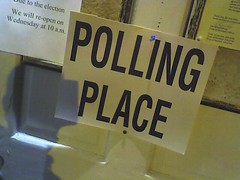On Wednesday I caught perhaps 10 minutes of the Jason Lewis Show but in that short window Jason captured for about 60 seconds exactly what is wrong with this country and how it can be fixed. (Here’s a link to that hour of his show.) Here is my transcript of the relevant statement (starting at 30:03 in the audio file):
We are consumed by things that don’t matter because we don’t have the intellectual discipline to stay focused, we make excuses.
You know really, if you wanted to make a statement, if you were truly upset and you wanted to make a statement: A) You would be bright enough to understand what’s going on, most people are too obtuse to realize that, most people are more concerned about X-Box than they are about what’s happening in Washington and so, frankly, we’re a nation of dolts. But if you could get people to think and to study and to realize what’s going on and that they knew economics and civics, that would be the first step.
The second step would be – everybody in the year 2010 would simply devote, make a commitment right now that they are going to spend two hours a week, three hours a week, four hours a week on campaigns. They’re going to take back their city council, they’re going to take back their party, they’re going to take back their county commission, they’re going to take back their state legislature, they’re going to take back Congress. Their going to find a candidate or two and they are going to work harder than they ever have, they’re going to spread the word, they might write a check for thirty bucks or three thousand bucks, but they’re going to do something.
There’s no substitute for commitment and hard work and that’s what needs to take place. Am I certain it will? No I’m not at all.
I’m absolutely sure that Jason is right about that. In fact I would go further and say that this nation would change drastically within two years if 60% of eligible voters would take just three hours per week to take the actions he suggested – that includes the fact that all those voters would come to a wide variety of conclusions about the proper course of action to deal with the problems we face.




